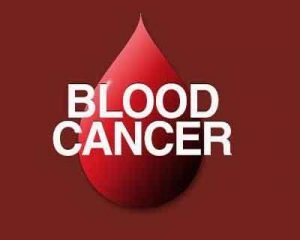- Home
- Editorial
- News
- Practice Guidelines
- Anesthesiology Guidelines
- Cancer Guidelines
- Cardiac Sciences Guidelines
- Critical Care Guidelines
- Dentistry Guidelines
- Dermatology Guidelines
- Diabetes and Endo Guidelines
- Diagnostics Guidelines
- ENT Guidelines
- Featured Practice Guidelines
- Gastroenterology Guidelines
- Geriatrics Guidelines
- Medicine Guidelines
- Nephrology Guidelines
- Neurosciences Guidelines
- Obs and Gynae Guidelines
- Ophthalmology Guidelines
- Orthopaedics Guidelines
- Paediatrics Guidelines
- Psychiatry Guidelines
- Pulmonology Guidelines
- Radiology Guidelines
- Surgery Guidelines
- Urology Guidelines
Blood cancer treatment may severely weaken immune cells

New York : Some blood cancer treatments can cause a long term effect premature ageing of important disease fighting cells, says a study.
The researchers discovered that stem cell transplant is linked to a marked increase in the "molecular age" of these immune cells by as much as 30 years in a group of patients with blood cancer.
Despite the risk for significant short and long term side effects, the researchers said stem cell transplant is an extremely important treatment option.
"We know that transplant is life-prolonging, and in many cases, it's life-saving, for many patients with blood cancers and other disorders," said the study's lead author William Wood, Associate Professor at The Lineberger Comprehensive Cancer Center, University of North Carolina School of Medicine in the US.
"At the same time, we're increasingly recognising that survivors of transplant are at risk for long term health problems, and so there is interest in determining what markers may exist to help predict risk for long term health problems, or even in helping choose which patients are best candidates for transplantation," Wood noted.
The researchers studied the impact of two different transplant types autologous stem cell transplant, which uses a patient's own stem cells, and allogeneic stem-cell transplant, which uses stem cells from a donor, on 63 patients treated at the University of North Carolina Hospitals for myeloma, lymphoma or leukemia.
In the study, published in the journal EbioMedicine, the researchers noted that autologous stem cell transplant had the strongest impact on molecular ageing of T-cells.
The researchers examined messenger RNA (mRNA) levels for a protein called p16. MRNA expression of the gene coding for the p16 protein has been found to exponentially increase with chronological age.
Strikingly, they found expression levels increased to a degree comparable to an additional 30 years of chronological age.
To try to explain why autologous stem cell transplant might age T-cells faster, they speculated that the forced regeneration of bone marrow that accompanies re-engraftment may contribute to stem cell ageing.
The researchers believe their findings could lay the foundation for future studies into using this age marker to enable physicians to better quantify a patient's potential risk and benefit associated with a stem cell transplant.

Disclaimer: This site is primarily intended for healthcare professionals. Any content/information on this website does not replace the advice of medical and/or health professionals and should not be construed as medical/diagnostic advice/endorsement or prescription. Use of this site is subject to our terms of use, privacy policy, advertisement policy. © 2020 Minerva Medical Treatment Pvt Ltd